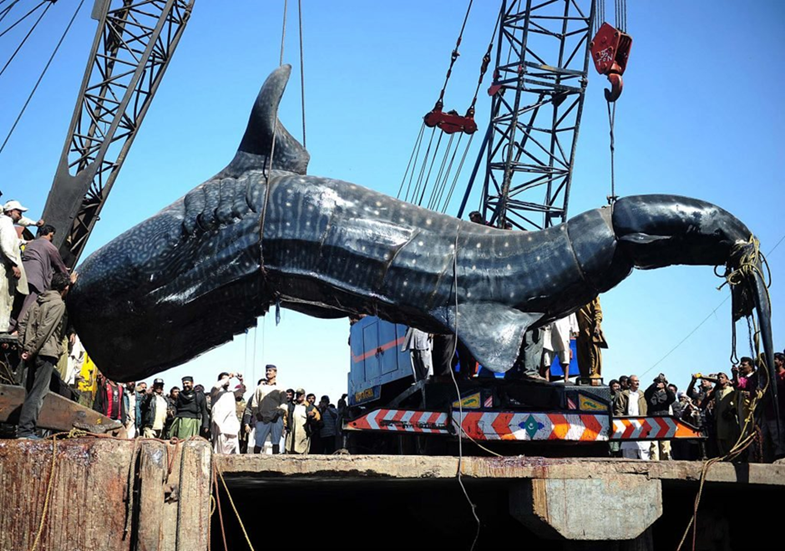Whale sharks are believed to bring good fortune to the fishers as per a folktale in Derawan in East Kalimantan, on the island of Borneo. There is a popular story there about a whale shark rescuing someone from drowning in the middle of the sea. Local fishers even say that whale sharks can attract small fishes, thus being harbingers of good fortune to the fishers.
Whale sharks, in reality are some of the ocean’s most gentle giants. Due to human activity, they have bec ome endangered through no fault of their own. By accidentally becoming entangled in fishing nets, being hunted for their fins and poisoned by ingesting toxic plastics, this species has come to the brink of becoming extinct.
ome endangered through no fault of their own. By accidentally becoming entangled in fishing nets, being hunted for their fins and poisoned by ingesting toxic plastics, this species has come to the brink of becoming extinct.
Global warming and climate change is an issue. As oceans warm up, it causes the oxygen levels in the water to drop. Oil slicks from tanker spills and oil rig disasters may threaten whale sharks, though dead whale sharks have not yet been observed near these disaster areas. Adding to that, the whale shark’s very long lifespan and very late maturation, makes it a disastrous combination of doom for the whale sharks. This means that whale sharks are shockingly dying faster than they can reproduce.
An estimated 100 million whale sharks a year are killed for their meat, while commercial fishing, pollution, and fear also being fatal for them. Whale sharks are still commercially hunted in some areas of the world, and since their population is unknown, this hunting could potentially represent a serious threat. Whale sharks are important for our ecosystem. If the whale sharks were to go extinct, there could be an increase in the number of planktons. So, to avoid this, we have to follow through with conservation efforts.
The following conservation measures have been adopted:
- Bans on fishing for whale sharks and selling or trafficking in their meat.
- A Whale Shark Photo-Identification Library exists as an effort to catalogue and estimate the world population of these huge, fascinating fish based on the unique skin patterns of specific individuals.
- Oceana is the largest international organization focused only on ocean conservation, protecting marine ecosystems and endangered species such as the Whale Shark.
- Simply by reducing your consumption of seafood or by choosing only sustainably caught products, we can help to reduce the number of sharks killed each year by commercial fishing operations.
- If we all did simple things like reducing our carbon footprint, reducing our reliance on single-use plastics, recycling our waste, and participating in beach cleans – we could all make a big difference!!
A new surge in research will help secure legal protection for whale sharks in several locations worldwide, including Australia, Maldives, Philippines, India, Mexico, Honduras, and the United States. These measures have to be consciously adopted to make a difference to Whale Sharks!
Author: Janvi Hanspal is a school girl who is a volunteer at STRAW. She enjoys using her skills of research work to contribute for the welfare of the animals and to make society a better place.